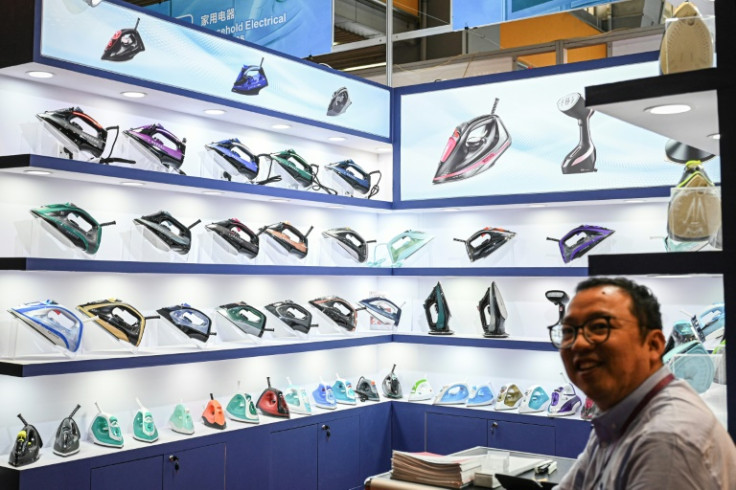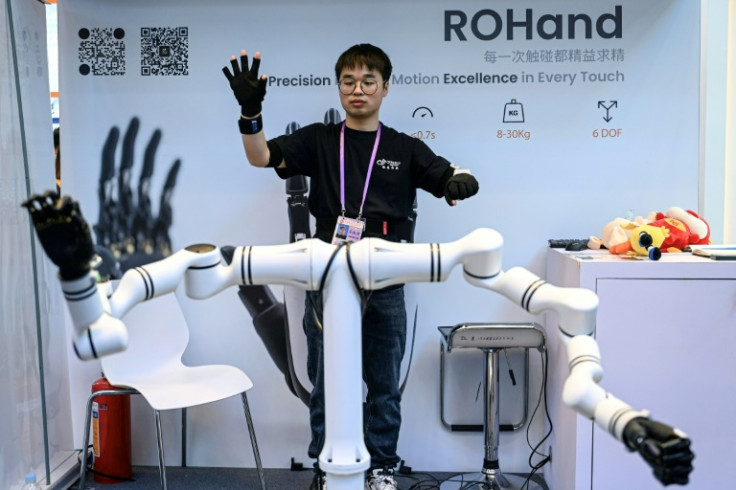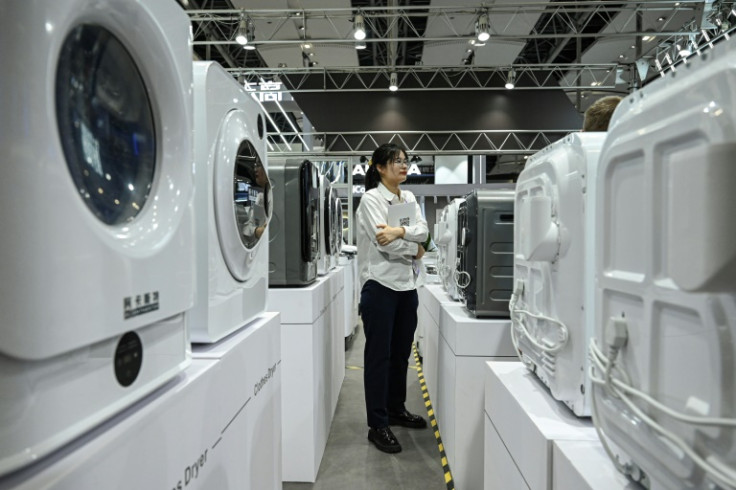Trump Trade War Casts Pall In China's Southern Export Heartland

The blistering tariff war launched by Donald Trump this month cast a shadow Tuesday as businesses met to strike deals at a trade show in southern China, for decades a key hub for exports to the United States.
Beijing and Washington have been locked in a fast-moving, high-stakes game of brinkmanship since the US president began his global tariff assault that has particularly targeted Chinese imports.
US duties on China are now at an eye-watering 145 percent, while Beijing has retaliated with a 125 percent toll of its own on US imports.
And the pain is already being felt in China's manufacturing heartland, long dependent on Americans' appetite for cheap goods.
For Hou Keyao, a 29-year-old sales representative at a lights manufacturer based in the southern city of Zhongshan, it all happened "too fast".
Hou's employer, Wosen Lighting Technology, exports more than 95 percent of its products to a range of markets -- and is a supplier of US e-commerce giant Amazon.
"We didn't have time to make adjustments," he said, but the impact is expected to be "very big".
"I hope that everyone can sit down and talk properly," said Hou.
"It would be best to try to keep the tariffs at the same level as before."
He was among thousands of people flooding into a vast convention complex on Tuesday for the opening day of the Canton Fair, a trade show held in the southern city of Guangzhou twice a year.
This year's first edition of the fair features around 31,000 companies and 74,000 booths -- nearly all geared towards the export market -- according to state-run TV network CGTN.
Despite the turmoil, the fair bustled with visitors from around the world -- many accompanied by Chinese translators to facilitate building contacts and striking deals.
Trump's sweeping tariff hikes this month triggered major volatility in stock markets and have raised fears of a global recession.
Many of them were last week paused by Trump for 90 days to allow for negotiations, though levies on China were hiked further.
Jean Zhu, 49, said she worked for the export department of Rightlite, a lighting company based in the eastern province of Jiangsu.
She told AFP at the firm's booth that the trade war will still hurt -- even though it does a limited amount of business with the United States.
"There must be an indirect impact, because the global economy is inseparable," she said.
Fluctuating currency values caused by the latest tariffs could result in reduced demand from European customers -- among her company's main drivers of sales, Zhu said.
"This tariff adjustment is also a process of reshuffle in our industry," she said.
It's "the survival of the fittest", Zhu explained.
"We hope that we can withstand this test and welcome the arrival of the next foreign trade peak."
Yang Hongjie, a salesperson for electronics firm Hongyi Group China, told AFP that while his company wasn't dependent on American customers, changes to global copper prices caused by the tariffs could affect their sourcing of materials.
Yang said 90 percent of Hongyi's business is in Europe, and it also has clients across Central Asia -- including many countries that play a key part in Beijing's Belt and Road infrastructure drive.
"After Trump's tariff trade war, our relationship with the Belt and Road countries may be closer," he explained.



© Copyright AFP 2025. All rights reserved.





















